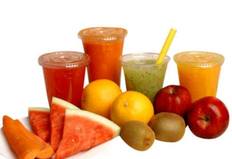
Some people think of sugar as something natural, but it is entirely false. Sugar is actually manufactured from sugarcane through a series of chemical processes, so it is artificial and not a natural nutrient. Basically, sugar is 99.9% carbs and when taken in excess, can be harmful for us. It has been found that fructose has the most dangerous effects on the human system, in comparison to all other types of sugar.
Earlier, like sucrose, fructose was known to be harmless but more recent scientific research has proven it to be a toxic sugar. Some of the main reasons why it is deemed harmful for human beings are:
•Obesity & Diabetes: High fructose intake is linked with diabetes and obesity. According to the most recent WHO reports, nearly 8.3% of the population has diabetes in America and it is expected to triple by 2050. According to the New York Times, obesity in Americans has markedly increased in 2011. This is mainly because of the popular use of the inexpensive corn syrup, a derivative of fructose. In 2009, LA Times reported that – on an average, Americans consume about 50gms of high fructose corn syrup each day.
•Energy Explosion: Since fructose is the source of energy, a high intake of fructose may energize the body a bit too much. In layman’s terms, eating a lot of fructose at once may become hard for your body to handle causing energy explosion in the body.
•Heart Attack: What happens when fructose enters your body anyway? The body excretes insulin when normal glucose sugar enters the system, but fructose is processed by the liver. The liver doesn’t have enough capability to handle a lot of fructose at once and starts converting it into fat sending it into the bloodstream as body fat (triglycerides in medical terms). These triglycerides cause a risk of heart attack when produced in excess.
•Appetite Satiation: As the old metaphor goes – a person is never satisfied if he gets too much of something. Same is the case with fructose and the human body. When an excessive amount of fructose enters our system, it increases our craving for food even more, it will make us feel as if we’re eating enough, but not really feeling satisfied.
•Type-2 Diabetes: Substances like high fructose from corn syrup and soft drinks are the main reasons for increasing risks of type-2 diabetes in United States. High fructose leads to reductions in insulin generation, an important element for the proper functioning of the body.
•Gastrointestinal Problems: Eating too much fructose can lead to gastrointestinal problems like muscle cramps, bloating and diarrhea.
•Hypertension: Excess fructose consumption has also been linked to hypertension and high blood pressure levels. In a 2010 study, published in the Journal of American Society of Nephrology, it was found that volunteers with an average fructose consumption of more than 74 g per day were likely to have high blood pressure. Some 4528 adults who were facing hypertension were examined to check the relation between their fructose intake and blood pressure levels. Average daily consumption of fructose, amongst these volunteers, was found to be nearly 74 g (contained in 2.5 cans of soft drink).
•Cancer: Another study carried out in UCLA’s Jonson Comprehensive Cancer Center showed that pancreatic tumor cells use the fructose present in the body to divide and reproduce, causing high risks for cancers.
•Other Heart Diseases: A research published in Journal of Clinical Investigation showed that overweight patients had more risks of heart and diabetes when their 25% consumed calories came from fructose-sweetened beverages in comparison to glucose sweetened beverages. 32 participants (male and female) aged 50 years were used for this study. For 10 weeks, the participants were asked to drink either glucose- or fructose-sweetened beverages which totaled up to 25% of their daily calorie intake. Obviously both type of participants gained weight, but the fructose ones gained more belly weight than the glucose ones. Belly weight has been linked to heart diseases and diabetes. Another important finding of this study was that the fructose group had developed more bad cholesterol than the sucrose group.
A lot of scientists are of the opinion that it’s not just high fructose, which is dangerous for you; it is any type of excessive sugar intake in your diet that can prove harmful.
What A 300ML Can Of Soda May Do To You?
Most of us don’t know what’s in that can of cola, but if you are one of those who drink soda with every meal, you might have to stop and think again.
Most of the soft drinks we consume contain high amounts of fructose. In fact, drinking flavored soft drinks is the main reason why obesity is on the rise in America. Obesity is just the first step to a lot of chronic diseases like heartattacks, high cholesterol, cancer, and osteoporosis.
The choice is yours whether to control your fructose intake or keep living in ignorance, whether or not it leads you ultimately to a painful death.
References:
http://jasn.asnjournals.org/content/21/12/2036 http://www.nytimes.com/2011/05/26/health/nutrition/26fat.html?_r=1 http://www.nytimes.com/2009/03/21/dining/21sugar.html
http://www.trit.us/transition/sugars.html
http://lowcarbdiets.about.com/od/nutrition/a/fructosedangers.htm


